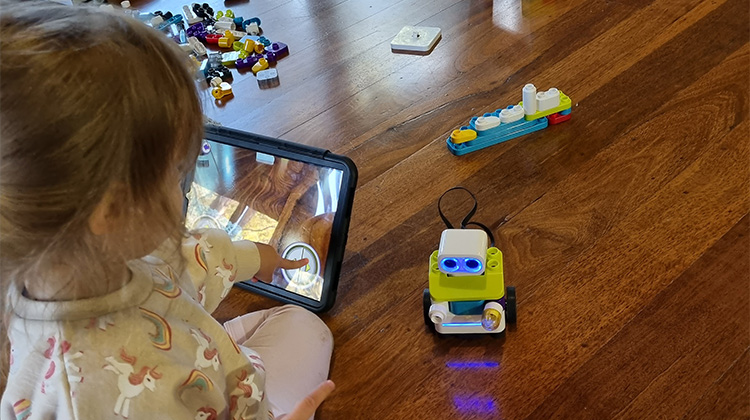The Building Blocks of Creativity and Wellbeing in Kids

Creativity is essential part of play and has an important role in children’s wellbeing and with everything being digitised an investigation of how play in a digital space affects them, positively or negatively, is required.
UNICEF and the LEGO Group, funded by the LEGO Foundation, have formed the Responsible Innovation in Technology for Children (RITEC) project, to help clarify what a digital world that prioritises the wellbeing of children looks like.
Associate Professor Karen Murcia of Curtin University is leading the Western Australian element of this project, through the ARC's Centre of Excellence for the Digital Child.
"We will interview the children, and their parents to understand what they are experiencing: are they connecting as a family as they engage in digital play? Do they feel that they have control over their experiences and their creativity? Are there points of stress? Is this a positive experience that is connecting to their general wellbeing? What are the aspects of this play that are important and can be replicated elsewhere? What makes for a digital play experience that positively impacts on wellbeing?" says Assoc Prof Murica.
"What we are looking to achieve is evidence-based tools for businesses that will enable them to make informed design choices that promote the wellbeing of children," says Associate Professor Karen Murcia. "Creativity and wellbeing are so entwined, and this project will be significant in increasing our understanding of how companies can promote wellbeing in digital play."
The first part of the project explored the question: what does well-being mean to children in a digital age? More than 300 children from 13 countries participated.
"Children today are growing up in digital environments," says Murcia. "This project is one of many that is examining how we ensure that their wellbeing – including their creative wellbeing – is being supported in these spaces.
"Children's wellbeing is directly related to their ability to think creatively. It is extremely important that children have positive spaces to engage with digital technologies for creativity, and the agency to do so. They need spaces to be able to try out ideas, take risks and creative chances.
"So much is said and written about the negatives of digital play – but what are the benefits? How can the digital experience enhance wellbeing?"
As part of this project, which includes research from Australia, New York University, the City University of New York and Sheffield University in the United Kingdom, Associate Professor Murcia has recruited six families in Western Australia, with a further six to be recruited in 2023.
"The experience of these families will be replicated at the other sites where this research is being undertaken," explains Associate Professor Murcia. "All of the children will be given a common digital play experience, to be shared within their families.
"The voice of the children is essential in understanding how they experience digital play. The families will have two weeks to use the digital play experience, and the children will be able to record what they are doing and share this with us.”